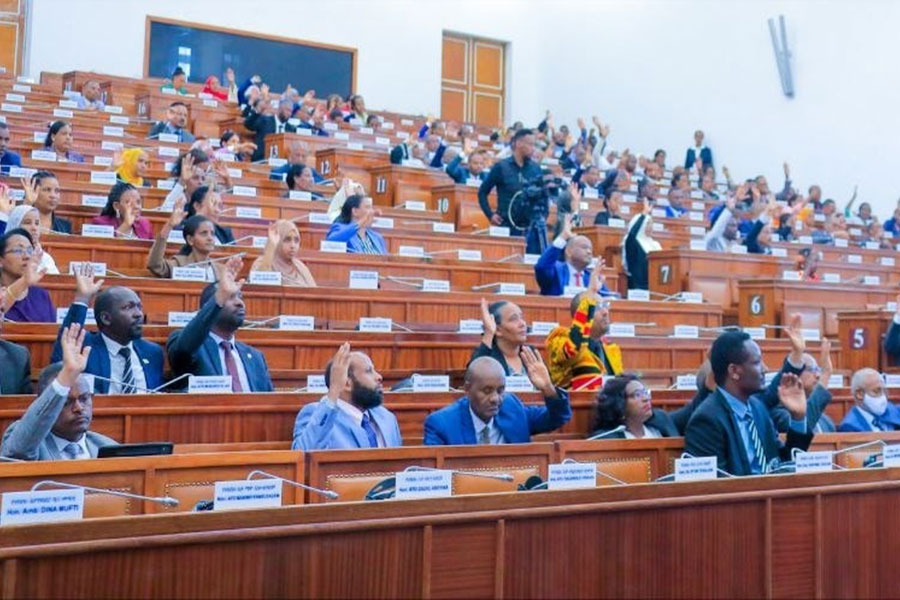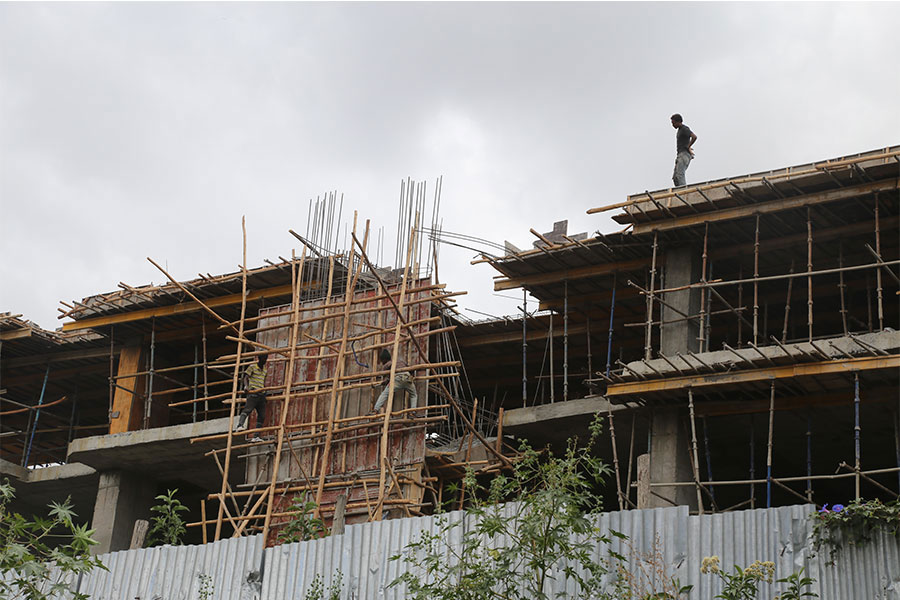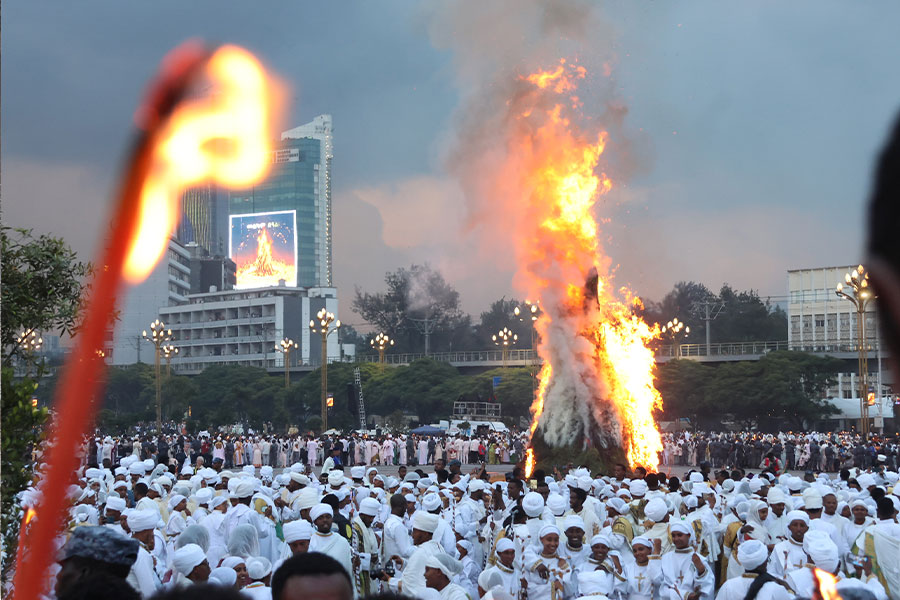
Editorial | Nov 19,2022
Sep 21 , 2019.
The creeping of faith in public policymaking into the already fractious identity politics in Ethiopia calls for alarm. A diverse country where an overwhelming majority of citizens are devout followers of one religion or another, the political architecture in its legal and institutional setting has been built around linguistic-cultural fault lines.
Democratic institutions are weak, if not too frail, to enforce secular values engraved in the Constitution. In such a delicate environment, the introduction of faith into the mix of the state’s business amounts to adding fuel to the fire.
Ethiopia has come a long way toward undoing such convergence of the state and the church. One of the less noted but more fundamental changes the revolution in 1974 brought to Ethiopia’s governance system was the separation of the two institutions. Many may not remember that one of the first public demonstrations held in protest against Emperor Hailesellasie’s government was by Ethiopian Muslims demanding equality of faith in the eyes of the state.
Until then, the church had a share in the way the monarchy ran the affairs of the state. Of course, the Dergue, flirting with atheism born of Marxism, went further than the secularisation of the Ethiopian state. It devolved into persecution of people of faith in general and adherents of Protestant Christianity in particular.
Despite such a misguided overzealousness with considerable damage in violation of citizens’ fundamental rights - of faith, thought and speech - the secularisation of the state was one of the few positive contributions of the officers to the country’s governance.
Advances in human affairs have followed that pattern of the decoupling of religion from public life. Not without reasons.
The dominance of public life, whether by the Papacy or the Caliphate, had often been sources of conflict because of internal power struggle and external wars.
The atrocities brought against humanity during the times of Inquisition and the Crusades are fresh in the pages of human history to serve as unfading lessons. The 30-year war in Europe in the 17th Century was essentially a religious conflict that later evolved into a political and power struggle to rule the Roman Empire.
The fight between mainly Catholic and Protestant nations in one of the longest and brutal wars in history reconfigured the map of Europe. But not before causing an estimated eight million people to perish. Historians assert that the Peace of Westphalia that ended this war laid down the foundation that ushered in the modern nation-state as we know it today.
The lesson of history was that the earlier Crusades and the latter wars were caused in no small part due to the mingling of political and military power with religious dogma. The modern state, in contrast, was to be established on the premise that citizens of a state, irrespective of their allegiances to any faith, are under the laws of that state, which is supposed to deal with them according to the general will without regard to the affiliation of faith.
It came as a result of a sober realisation that no one has custody to absolute truth as revealed by a transcendent power.
Historical factors after the Reformation also proved to the church that close proximity to power and intimate involvement with temporal authorities coincide with periods of the church’s history where it has abandoned its mission and committed regrettable errors.
And courage to admit error and ignorance does not lay with people of dogma who fail to distinguish between truth and faith. The first is something that must be examined against evidence, and the latter is something that needs to be followed in absolutism.
“A society of courageous people willing to admit ignorance and raise difficult questions is usually not just more prosperous but also more peaceful than societies in which everyone must unquestioningly accept a single answer,” writes Yuval N. Harari, the author of the highly praised book “Sapiens,” in his latest book, “21 Lessons for the 21st Century.”
One of the founding fathers of the greatest experiment in self-government that has become the United States, Thomas Jefferson, coined the phrase “a wall of separation between the church and the state” as being the best possible system of governance for a democratic state. Neither favouring any religion nor interfering with the rights of citizens to freedom of religion, such a state seems to be the best answer to administer a modern, diverse and democratic state.
It can be argued that this is a utopian ideal that is hard to attain. That there is always some level of interactions between the two may sound a valid argument. However, it is equally true that whenever that principle has been disregarded, conflicts invariably followed.
Indeed, many of the intractable conflicts around the world - from the Irish conflict to the Middle East, and from Kashmir to the Bosnian War - involve the intermixing of religion, ethnicity and politics. They were all fueled by divine guidelines, provocative slogans and inspiring battle cries.
The architects of Ethiopia`s Constitution were cognizant of such carnage when composing the article on the separation of the state and religion. It reads: “State and religion are separate. There shall be no state religion. The state shall not interfere in religious matters and religion shall not interfere in state affairs.”
They are to be commended for their insight in instituting such a secular code as a safeguard from dogmas of “eternity, purity and redemption.” It has served the country well in spite of its imperfect application in practice.
Staying the course on that ideal is the wise course of action.
There might be an understandable temptation to get dragged into some peacemaking role by those in the highest offices to correct perceived historical wrongs. However, in the long term, the right approach would have been to follow the constitutional rule of non-interference.
Worrisome signs are emerging, too. There is an increased presence of religious figures at public policy events where heads of state and government are present. A blurring of political and religious discourse in state functions is creeping. There is at least a perception of the disproportionate influence of religious groups in public policy.
These are concerns that should not be easily dismissed. If a certain segment of the population feels excluded or perceives others as being given more access and proximity to power, it creates an unhealthy political environment.
It is important that those entrusted with public office pay heed to these early warning signs and make the necessary corrections.
However, even though the main onus is on officeholders, this responsibility is not limited to them only. Politicians in the opposition and activists of all stripes should also refrain from trying to use religion as a mobilising tool for political ends. It may be an easy and powerful means of public mobilisation, but they should resist the temptation to use it, because it does more harm than good in the long term.
PUBLISHED ON
Sep 21,2019 [ VOL
20 , NO
1012]

Editorial | Nov 19,2022

Editorial | Jul 27,2024

Sunday with Eden | Jun 22,2024

Radar | May 24,2025

Fortune News | Oct 02,2021

Radar | Nov 05,2022

Radar | Jun 01,2024

Radar | Jul 01,2023

Fortune News | Sep 27,2025

Sunday with Eden | Apr 13, 2025

Photo Gallery | 179317 Views | May 06,2019

Photo Gallery | 169514 Views | Apr 26,2019

Photo Gallery | 160423 Views | Oct 06,2021

My Opinion | 137167 Views | Aug 14,2021

Dec 22 , 2024 . By TIZITA SHEWAFERAW
Charged with transforming colossal state-owned enterprises into modern and competitiv...

Aug 18 , 2024 . By AKSAH ITALO
Although predictable Yonas Zerihun's job in the ride-hailing service is not immune to...

Jul 28 , 2024 . By TIZITA SHEWAFERAW
Unhabitual, perhaps too many, Samuel Gebreyohannes, 38, used to occasionally enjoy a couple of beers at breakfast. However, he recently swit...

Jul 13 , 2024 . By AKSAH ITALO
Investors who rely on tractors, trucks, and field vehicles for commuting, transporting commodities, and f...

Oct 25 , 2025 . By YITBAREK GETACHEW
Officials of the Addis Abeba's Education Bureau have embarked on an ambitious experim...

Oct 26 , 2025 . By YITBAREK GETACHEW
The federal government is making a landmark shift in its investment incentive regime...

Oct 29 , 2025 . By NAHOM AYELE
The National Bank of Ethiopia (NBE) is preparing to issue a directive that will funda...

Oct 26 , 2025 . By SURAFEL MULUGETA
A community of booksellers shadowing the Ethiopian National Theatre has been jolted b...